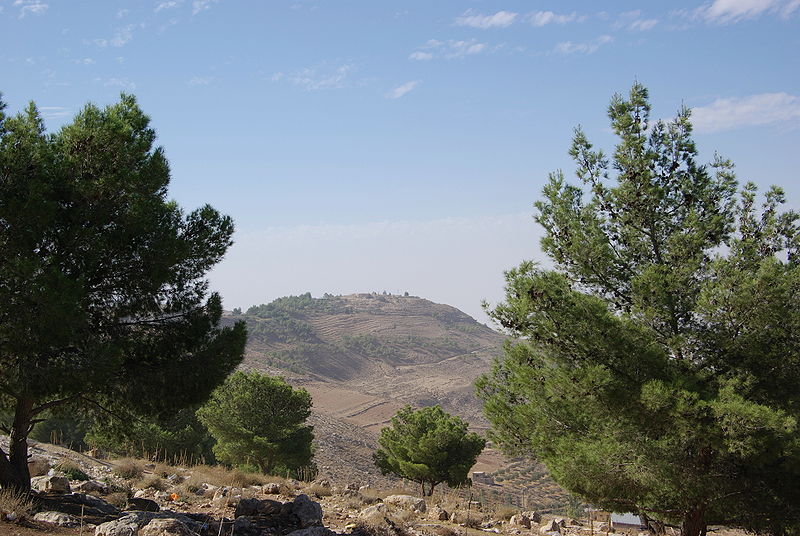17 Apr. Moses appoints Joshua as the new leader of Israel
“Then the LORD said to Moses, ‘Climb this mountain [Mt Nebo] in the Abarim Mountains, and look at the land I have given to the Israelites. After you have seen it, you will die and join your ancestors as your brother Aaron did, because you both acted against my command in the Desert of Zin. You did not honour me as holy before the people at the waters of Meribah.’ (This was at Meribah in Kadesh in the Desert of Zin.)”
“Moses said to the LORD, ‘The LORD is the God of the spirits of all people. May he choose a leader for these people, who will go in and out before them. He must lead them out like sheep and bring them in; the LORD’s people must not be like sheep without a shepherd.’”
“So the LORD said to Moses, ‘Take Joshua son of Nun, because my Spirit is in him. Put your hand on him, and have him stand before Eleazar the priest and all the people. Then give him his orders as they watch.’”
“'Let him share your honour so that all the Israelites will obey him. He must stand before Eleazar the priest, and Eleazar will get advice from the LORD by using the Urim. At his command all the Israelites will go out [of the camp], and at his command they will all come in.’”
“Moses did what the LORD told him. He took Joshua and had him stand before Eleazar the priest and all the people, and he put his hands on him and gave him orders, just as the LORD had told him.”
(Numbers 27:12-23)

After the second census on the plains of Moab revealed over 600,000 fighting men ready to attack the Canaanites, God told Moses to look out across the ‘promised land’ before he died: “Climb this mountain in the Abarim Mountains, and look at the land I have given to the Israelites” (Numbers 27:12).
The mountain Moses climbed was Mount Nebo (see the map on 13 April), and today there is a chapel commemorating Moses at the ‘pisgah’ or viewpoint overlooking the Jordan Valley and the Dead Sea.
Moses was told that, while he would see the ‘promised land’, he would not enter it because he and Aaron had “both acted against my command in the Desert of Zin. You did not honour me as holy before the people at the waters of Meribah.” (see Numbers 20:1-13)
Instead, God instructed him to appoint Joshua (one of the two spies who, nearly forty years earlier, had encouraged the Israelites to attack the Canaanites immediately – see Numbers 14:6-9) as the new commander of the army of Israel. Joshua stood out as the new leader because God’s Holy Spirit was in him (see Numbers 27:18).
God chose Joshua to shepherd his sheep, his own people: “He must lead them out like sheep and bring them in; the LORD’s people must not be like sheep without a shepherd.” About 1400 years later, another Joshua (‘Joshua’ (Hebrew) or ‘Jesus’ (Greek) of Nazareth) was reminded of these words when he realised that the people of Israel in his own time were “like sheep without a shepherd.” (Matthew 9:36)
Moses laid his hand on Joshua, who was then commissioned by Eleazar the priest to succeed Moses as the leader of the people. While Joshua would lead the people out of the camp into battle, Eleazar the high priest would “get advice from the LORD by using the Urim.” (Numbers 27:21). The ‘Urim’ and ‘Thummin’ were probably gemstones on the breastplate worn by the high priest, and were used by Eleazar to make judgements about a person's wrongdoing. If God indicated the Urim was chosen it meant ‘guilty’, while choosing the Thummim indicated ‘innocent’ (see Exodus 28:30).
The photo (by Berthold Werner) shows Mount Nebo, where Moses looked out across the 'promised land' of Canaan.
You can read more about the circumstances surrounding the commissioning of Joshua @ https://www.thebiblejourney.org/biblejourney2/26-the-journey-continues-from-sinai-to-moab/the-israelites-defeat-the-kings-of-midian/
